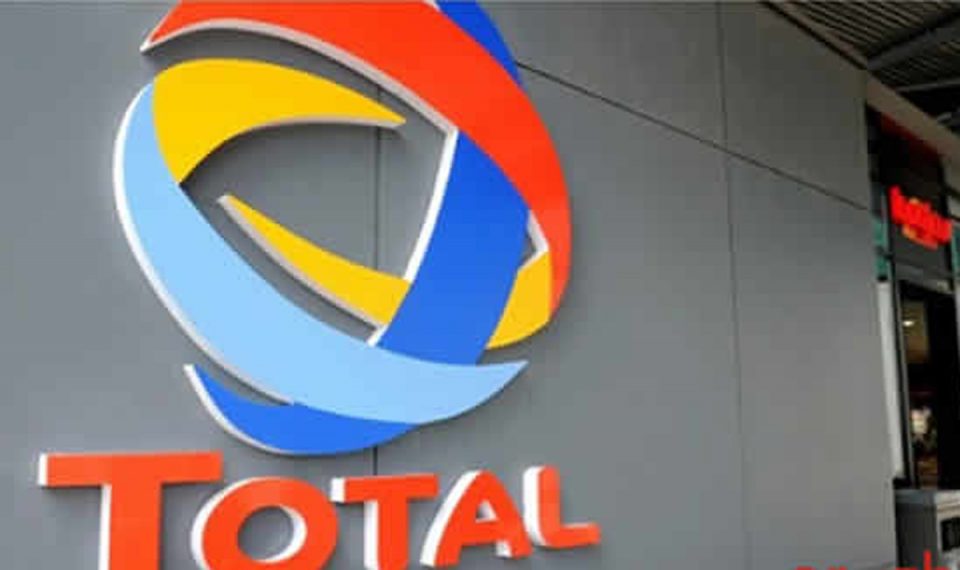The world is seeking a cleaner environment by reducing greenhouse gas emissions, the Oil and Gas Industry must respond with a cleaner, efficient, affordable and sustainable energy mix, AMBROSE NNAJI examines how Total Plc responds to the issue.
The global energy scene is changing dramatically, prompted by a drive for a cleaner environment and a commitment to reducing the risk and impact of climate change. The Paris Climate Accord, adopted in 2015 by World Governments, and came into force in 2016, pledged to limit global temperature rise, to 2 degrees Celsius above pre-industrial levels and preferably to 1.5 degrees Celsius.
At the same time, it is estimated that about 10 billion people worldwide will need access to energy by 2050, representing about a 50percent increase from today. The Industry is hereby presented with two targets; growth in energy demand and a climate change commitment.
Executive Director, Finance & Control/Chief Financial Officer (CFO), Total, Exploration and Production (E&P) Nigeria Limited, Mrs. Tai Oshisanya disclosed that Total Nigeria Plc, a leader in the broader energy transition had taken remarkable steps and initiatives to reducing its Carbon Footprint.
Oshisanya revealed that the company had set the target of a ‘Net zero carbon emissions by 2050 or sooner across its worldwide activities, both direct from its operations and indirect emissions from third parties linked to its operations adding this includes all emissions.
According to her, the company has been reducing GHG emissions from its oil and gas facilities with the goal of reducing emissions from 46 Mt Co2e in 2015 to 40 Mt Co2e by 2025. In addition, the company targets a 60percent reduction by 2050 in the average carbon intensity of energy products used by Total’s customers worldwide she added.
Total’s projection for 2030 is to supply a third more energy than in 2015 but with fewer emissions across its worldwide operations. This transformation will see accelerated investment in carbon sinks, biofuels, renewables and cleaner fossil fuels.
Meanwhile, Total Plc has commended government’s interest in ensuring that the Petroleum Industry Bill (PIB), was passed into law this year. Oshisanya agreed that the bill provided the stability needed to attract adequate funding for new investments, particularly in Deep offshore and Gas Development sectors.
Oshisanya who spoke on the theme “Environmental, Social and Governance (ESG) Dynamics and Industry Projects Financing–International Oil Company (IOC) Perspective during the virtual Energy Forum of 2021 Oloibiri Lecture Series of Society of Petroleum Engineers (SPE) Nigeria Council noted that beyond the environment, there were social and governance dynamics which must be considered.
Today, more than ever before, there are a lot of non-governmental organisations (NGOs) and Civil Society Organisations which intensely probe the activities of the Oil and Gas industry both locally and globally. The Executive Director said the industry was subjected to intense scrutiny due to the nature of its operations and impact on society.
“We face pressure for increased transparency as society seeks to understand what we do (ethics). Today, the activities of an industry operator in one country can be challenged in a Court of Law in another country outside the jurisdiction of operation, as our operations have global implications”.
Oshisanya noted that these had impacted the type of investors the company attracted, its sources of funds and cost of capital, the prices/values of shares, among others insisting that the company must therefore be above board and comply with world standards aimed at protecting the society.
She noted that international lenders were now more attentive on where they invest their funds adding that they have factored in stringent “Environmental and Social Standards” aimed at ensuring that the oil and gas industry addressed these concerns when implementing projects
She noted that the Nigerian Sustainable Banking Principles, which provided that in the event of any ambiguity or conflict between any of these standards, the most stringent, specific requirement shall apply unless otherwise agreed in any Environmental, Social and Health Management Plan or implementation of such requirement would breach the laws of Nigeria.
On governance, Oshisanya said that in addition, the Nigerian oil and gas industry was facing challenges of insecurity, and uncertainty in the fiscal and regulatory environment. The result is the loss of new investments in the industry and difficulty in obtaining funding for projects.
Not only do new projects require low carbon emissions, they must also be profitable with favorable fiscal terms that preserve the value of present assets and assure future investments. Capital is not static – it drifts to where there is stability and certainty adding Nigeria has to be competitive.
The world and the Energy Industry have been impacted by the CoVID-19 pandemic. Total has adapted to the new reality through staff dedication, strict cost considerations, robust planning, etc. The Executive Director said the company had been able to keep its operations running smoothly and growing its production levels.




